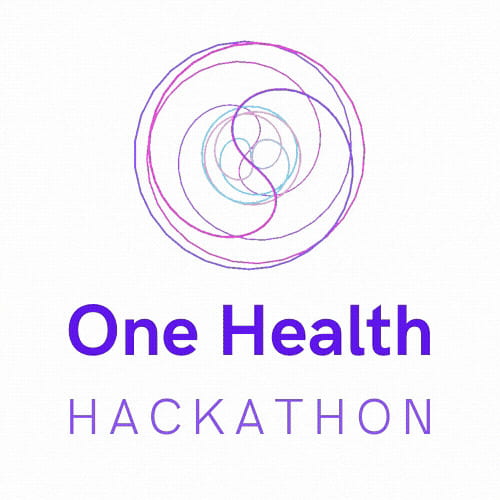The One Health Hackathon: Increasing One Health Awareness Among High School Students Across the Globe

What started with watching a Vox video about wildlife trade has now grown into a One Health Hackathon being held this week.
Laia Bent, Grade 12 student at University of Toronto Schools, first heard about One Health (the interconnectedness of animal, environmental, and human health) online. As information about COVID-19 spread across the internet this past summer, she came across a Vox video that mentioned the concept. She proceeded to “go down a rabbit hole in PubMed”, as she puts it, to find out more. The more she read, the more she was surprised that she had never learned about One Health.
“I thought it was so shocking that this is such a cool concept and something that I think really makes sense, and I’ve never heard of it. I don’t think any of my high school peers have heard about it. It seemed like something that was really isolated to academia,” Laia recounts. “The part of it that is so interesting to me is how connected everything really is. We tend to see ourselves as humans that we’re isolated in this bubble of man-made structures, but our actions really can impact the world around us like animals and the environment.”
Herein sparked the idea for the forthcoming One Health Hackathon. With the hope of creating more awareness about One Health among high school students, Laia along with her team made up of other students from both Toronto and from Arusha, Tanzania, have established the One Health Hackathon. Traditionally associated with the tech world, hackathons feature teams of people working together to come up with solutions to different problems. Laia calls the One Health Hackathon an “ideathon”. Teams made up of 2-4 students from across the globe will hear from and work with world-renowned experts to develop potential solutions for health problems that arise at the animal-human-environmental interface. The teams will create action plans for addressing their assigned diseases; these might take the form of app prototypes, business pitches, policy platforms or other things that haven’t even been thought of yet!
Laia explains, “I thought a hackathon would be a good idea because it’s like you can actually create a tangible solution. It will inspire people to really think critically about how they can change the way our world works to fit more with One Health principles.” She envisions high school as the perfect stage for this sort of interdisciplinary collaboration – a time when students have yet to specialize in particular fields.
The One Health Institute in conjunction with the One Health Student Committee at the University of Guelph is excited to be supporting the One Health Hackathon taking place from October 23rd to October 26th. We are also thrilled to have students from the One Health Student Committee available to help teams during the hackathon event.
To find out more about the One Health Hackathon, please visit: https://onehealthhackathon.org/



